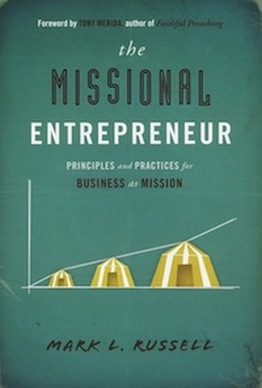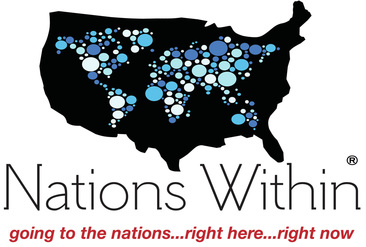|
A violent civil war breaks into your city. You are fortunate enough to connect with relatives in America, and you flee to their city to begin a new life. However, your troubles are far from over.
Generous social services, a stream of low skill jobs, and growing family networks have made my neighborhood a place of refuge for such refugees. Still, they face significant hardship. Mothers are most vulnerable to the trials of refugee life. Many are the sole providers for their families. Their husbands either divorced them or were killed in the civil war back home. Most jobs here are suited for men, and those suited for women often require English language proficiency—a significant hurdle for refugee mothers, who struggle to attend classes because they are already stretched thin by a houseful of children and a shoestring budget. Cultural tensions plague the homes of these women as well. It has been a significant challenge for their families to retain cultural identity and religious devotion under the clouds of economic hardship, social stigma, and extremist and gang recruiting. Our family moved into this predominantly immigrant neighborhood in 2011. We were overwhelmed with our first children, and our hearts went out to the single mothers who were facing the hardships of parenting alone in a foreign country. To my dismay, this community was not nearly as interested in receiving our help as we were in giving it. My attempts at coffee shop conversations were met with blunt rejection. People would leave the room the minute I walked in the door. After three years of gradual progress, I discovered the entrepreneurial spirit of my new neighbors. This became my key to Kingdom-oriented community development and my inroad to Gospel-centered relationships. I began consulting ethnic restaurant owners about Western foodservice standards. The people that once avoided me began to warmly welcome me for hours of conversation about their business practices and family lives. They even honored me with a seat in their Chamber of Commerce. Having built up this momentum, I began taking action on my vision of providing stable, dignified employment for single mothers of the community. My business partner and I, a mother of this group, are beginning a food distribution company that will soon employ nearly a dozen single refugee mothers. Our prayer is to see these single mothers find strength and purpose in this dignified work and in the Gospel so that their homes and communities may be uplifted in the light of Christ. – GEN Desk Contributing Writer, Nations Within Staff, and ERW Alumni
1 Comment
 “We were called here to serve.” Many overseas missionaries and domestic missionaries have used this phrase to explain where and why they are serving in a specific region or vocation. As powerful as this phrase is, it can also be a hidden challenge for missional entrepreneurs to confront. Missional entrepreneurs face the hard test of serving as both business owners and missionaries. So what service comes first, their call to witness or their call to operate as business leaders? The question of these priorities is a tough, but necessary, topic to address. A fine balance exists in the BAM world as missional entrepreneurs. A business may fail because it is not given proper time and attention. On the other hand, personal relationships may suffer at the expense pursuing a prosperous business. So what is the answer? Missional entrepreneurs are blessed with the unique opportunity to influence fellow co-workers and employees. With the guidance of Christ, the workplace is the missions field. Intentionally focusing on business operations, and seeking to serve employees as an involved leader, allows the real Mission to manifest itself into the daily lives of the lost. A story in Mark L. Russell’s “The Missional Entrepreneur," is told about two small businesses that were both located in the same cultural context, supported by Christian missions, and run by faithful believers. One business excelled, the other failed. What was the difference between the two businesses? One owner became overwhelmed by the need to spread the gospel and run a full-time business, the other intertwined the gospel with daily business operations and devoted his missional efforts to reaching the lost and hurting who came to work at the company. Discovering the balance between serving in the missions field and running a business is not an easy path to traverse. Have faith in where your heart is being led, and rest in the peace that the One who sent you has gifted you specifically with the desire to meet the needs of His children through the capacity of business. (Romans 8:28) As you are called to serve as a missional entrepreneur, so His will and glory will be done. “And my God will supply every need of yours according to his riches in glory in Christ Jesus.” Philippians 4:19 - GEN Desk Intern |
Categories
All
Archives
March 2020
|


 RSS Feed
RSS Feed
